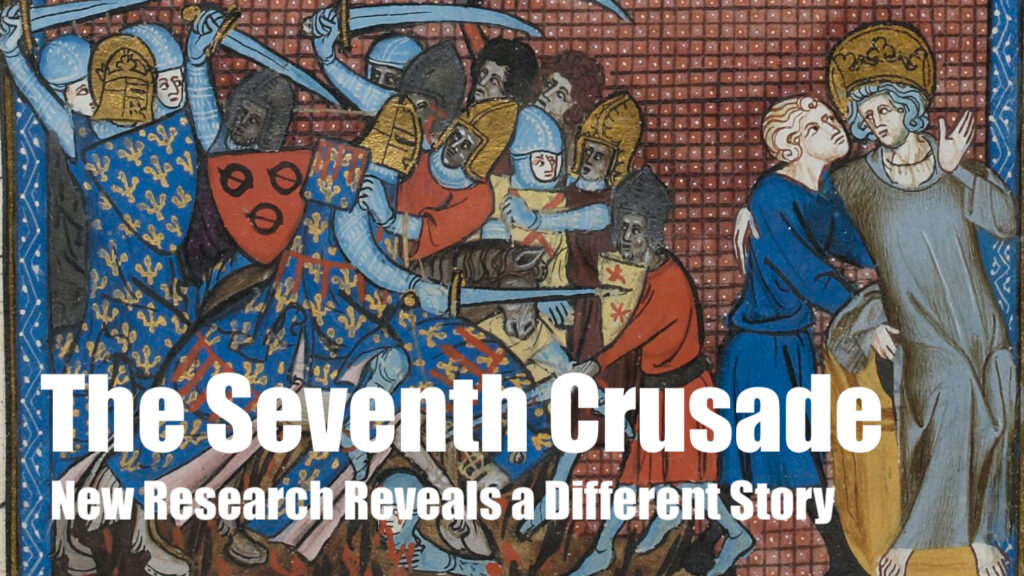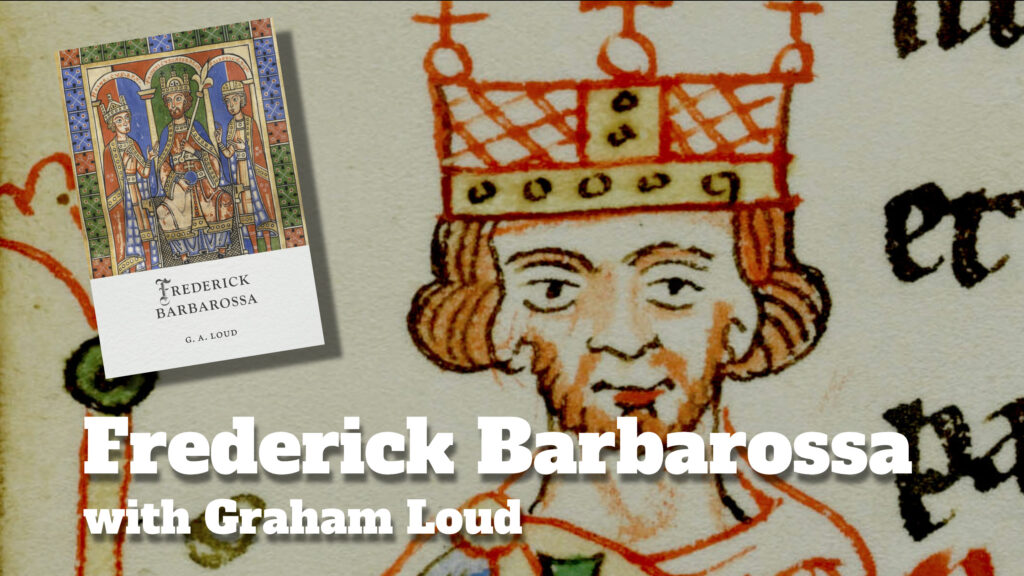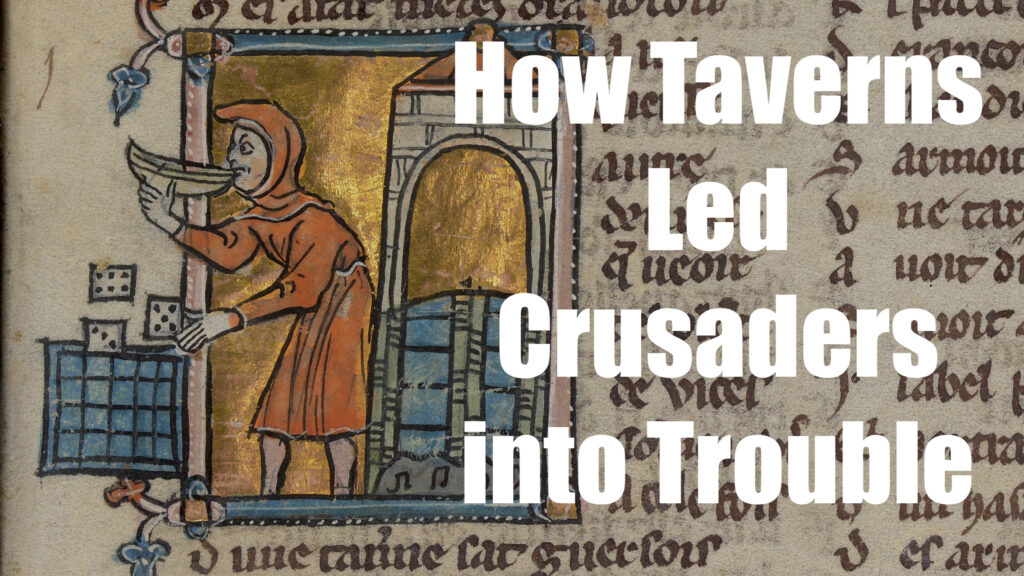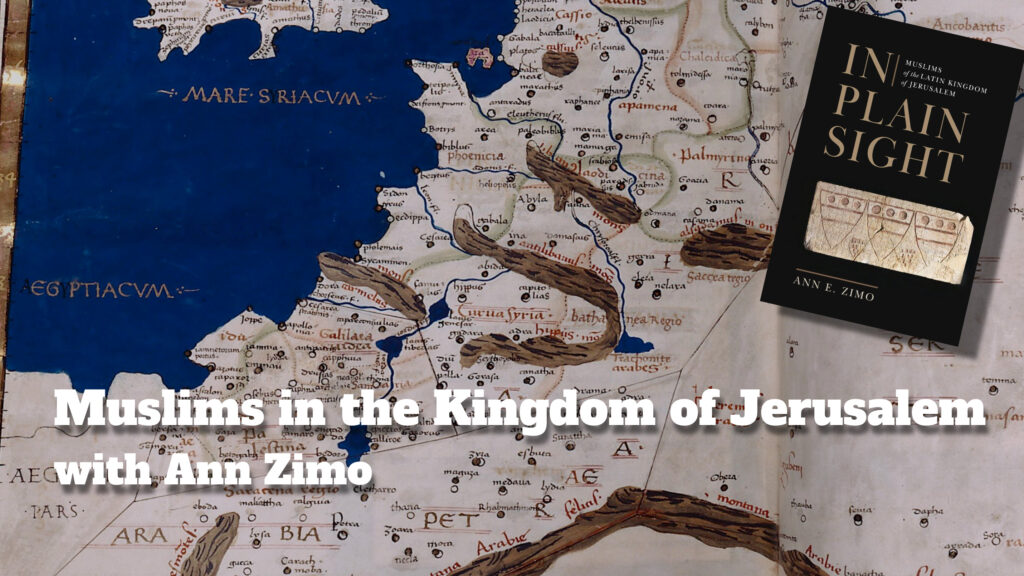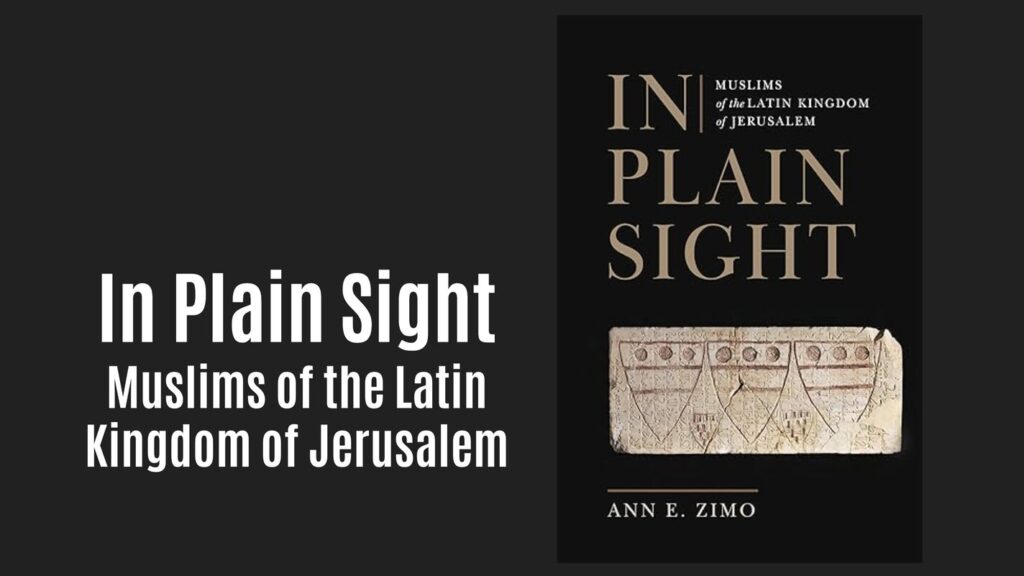New Medieval Books: Laywomen and the Crusade in England, 1150-1300
The Crusades enjoyed widespread support in Western Europe, and efforts on the home front were focused on mobilizing fighters for the Holy Land. This book explores the role of women in England in encouraging men to take up the Cross.
The Seventh Crusade: New Research Reveals a Different Story
New research using Arabic sources to reveal a different story of the Seventh Crusade — one shaped by internal Ayyubid power struggles, political intrigue, and the rise of the Mamluks during Louis IX’s failed Egyptian campaign.
Crusader Criminals: Plunder, Pillage and the Usual Suspects
Steve Tibble on criminality in the crusades, from the primal forces such as climate change and mass migration which fed a wave of violence, to the extraordinary stories of looting, piracy, banditry and muggings which emerged.
Frederick Barbarossa with Graham Loud
This week on The Medieval Podcast, Danièle speaks with Graham Loud about how Barbarossa came to power, how he managed to reign supreme in both Germany and Italy despite some bumps along the way, and why he’s sometimes revered as a once and future king in Germany.
New Medieval Books: Byzantine Sources for the Crusades, 1095-1204
These translated sources present Byzantine perspectives on the First through Fourth Crusades, offering a view of the Crusades as seen from Constantinople.
The Changing Image of Saladin: From Crusader Villain to Chivalric Hero
Few historical figures have undergone as dramatic a transformation as Saladin. Once cast as a ruthless enemy of Christendom, he later became the very model of knightly virtue in Western literature.
The Crusades: A Very Brief History, 1095-1500
Between the mid-11th and late-15th centuries, a historically specific configuration of material and ideational factors gave rise to a constellation of religious wars now known as “the Crusades.”
Drunk and Disorderly: How Taverns Led Crusaders into Trouble
Crusading was meant to be a holy mission, but for many knights and soldiers, the lure of taverns, drink, and other temptations often…
Muslims in the Kingdom of Jerusalem with Ann Zimo
This week on The Medieval Podcast, Danièle speaks with Ann Zimo about the interactions between Muslims and Christians within the legal, political, and even spy networks of the Latin Kingdom of Jerusalem.
High Stakes in the Holy Land: Gambling, Sieges, and Crusader Missteps
Gambling wasn’t just a pastime in the Crusader States—it was a risky habit that often blurred the lines between entertainment and disaster. From siege lines to Mongol invasions, the stakes were as high as the dice rolls, with deadly consequences for the gamblers and their people.
New Medieval Books: The Teutonic Knights
The Teutonic Knights, a prominent military order, were active primarily in the Baltic region but also played a significant role in the Near East and Transylvania. This book explores their origins, rise to regional dominance, and eventual decline.
Why Did the Crusader States Fight So Many Battles (Especially When They Shouldn’t Have)?
Why did the Crusader States engage in so many battles when the odds and outcomes often seemed stacked against them?
Did the Knights Templar Betray Christendom?
The Knights Templar, shrouded in both reverence and suspicion, have long been a subject of intrigue. While the accusations of Satanism are among the most dramatic charges levied against them, claims of treachery and betrayal have also left an indelible mark on their legacy.
The Magi and Crusader Kings: Symbols of Faith and Power
What do the Three Wise Men and the Crusades have in common? Discover how medieval kings, knights, and emperors drew inspiration from the Magi’s journey, transforming their relics and symbolism into a powerful testament of faith, humility, and sacrifice.
New Medieval Books: The Damietta Crusade, 1217-1221
The Fifth Crusade saw European forces launch an ambitious invasion of Egypt. This book delves into the military dimensions of the campaign, examining the grand strategy of the Crusaders and the tactical manoeuvres employed during the protracted siege of Damietta, which spanned over 18 months.
New Medieval Books: The Latin Continuation of William of Tyre
As part of the Crusade Texts in Translation series, this account chronicles events in the Near East from 1184 through the conclusion of the Third Crusade. Written by an anonymous author reflecting on these events, the text explores the reasons behind the crusaders’ failure to achieve their goals.
Stealing Horses, Losing Feet: Crusader Animal Laws
There were many strange quirks associated with the justice systems of the Crusader States. They were, after all, on the frontiers of Christendom and many aspects of their law books were arcane in the extreme.
New Medieval Books: The Crusades and the Far-Right in the Twenty-First Century
The five essays in this collection explore how the Crusades continue to serve as a powerful historical symbol within Far-Right extremism. This influence is evident in acts of terrorism, political movements like Brexit, and even in cultural phenomena such as the Assassin’s Creed video games.
New Online Course: The Second Crusade: Sources and Studies
Discover our new self-paced online course on the Second Crusade, designed to guide you through the rich tapestry of primary and secondary sources. Delve into the events that shaped the Crusade in the Near East, Iberia, and northern Europe, gaining a deeper understanding of this pivotal chapter in medieval history.
Weapons, Violence, and the Crusades: A Medieval Arms Race
The sword and shield of medieval Europe weren’t just tools of war—they were catalysts of chaos, reshaping societies and escalating crime rates. From Christendom to the Crusader States, weapons played a dual role: defence and destruction.
Were the Crusader States Penal Colonies?
The population of the crusader states was not representative of normal demographics. Perhaps ironically, for societies with a heavily religious foundation, a disproportionate number of those who came to the crusader states were criminals.
Did Christians and Muslims Join Forces in the First Crusade?
The First Crusade is often seen as a clash between Christians and Muslims for control of Jerusalem. Yet, the reality was far more complex, with alliances that crossed religious lines.
New Medieval Books: In Plain Sight
After the First Crusade, many Muslim communities in the Eastern Mediterranean found themselves under the rule of the Crusader States. This book delves into the lives of these Muslims, exploring how they adapted and endured under their new rulers.
John of Brienne: King of Jerusalem and Emperor of Constantinople
We have released our first digital book – John of Brienne: King of Jerusalem and Emperor of Constantinople, by James Turner. You can buy it now on our Patreon Shop.
New Medieval Books: Frankish Jerusalem
After the First Crusade, Jerusalem became a melting pot of new settlers, leading to the rise of a transformed community. This book delves into 12th-century property records to uncover how these immigrants reshaped and redefined the city’s landscape.

